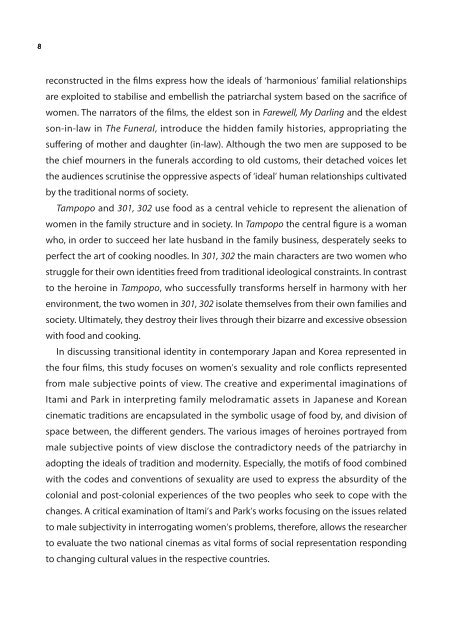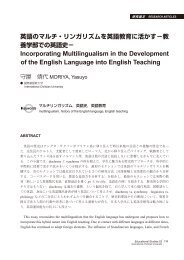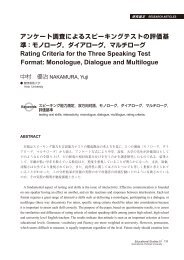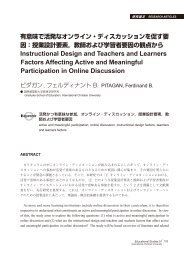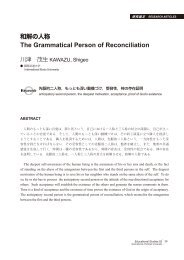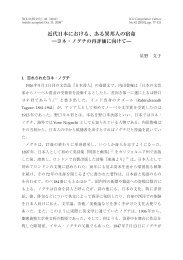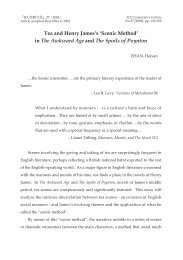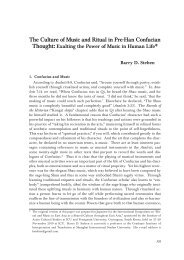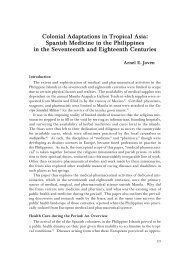Untitled - subsite - å½éåºç£æ大å¦
Untitled - subsite - å½éåºç£æ大å¦
Untitled - subsite - å½éåºç£æ大å¦
Create successful ePaper yourself
Turn your PDF publications into a flip-book with our unique Google optimized e-Paper software.
8<br />
reconstructed in the films express how the ideals of harmonious familial relationships<br />
are exploited to stabilise and embellish the patriarchal system based on the sacrifice of<br />
women. The narrators of the films, the eldest son in Farewell, My Darling and the eldest<br />
son-in-law in The Funeral, introduce the hidden family histories, appropriating the<br />
suffering of mother and daughter (in-law). Although the two men are supposed to be<br />
the chief mourners in the funerals according to old customs, their detached voices let<br />
the audiences scrutinise the oppressive aspects of ideal human relationships cultivated<br />
by the traditional norms of society.<br />
Tampopo and 301, 302 use food as a central vehicle to represent the alienation of<br />
women in the family structure and in society. In Tampopo the central figure is a woman<br />
who, in order to succeed her late husband in the family business, desperately seeks to<br />
perfect the art of cooking noodles. In 301, 302 the main characters are two women who<br />
struggle for their own identities freed from traditional ideological constraints. In contrast<br />
to the heroine in Tampopo, who successfully transforms herself in harmony with her<br />
environment, the two women in 301, 302 isolate themselves from their own families and<br />
society. Ultimately, they destroy their lives through their bizarre and excessive obsession<br />
with food and cooking.<br />
In discussing transitional identity in contemporary Japan and Korea represented in<br />
the four films, this study focuses on womens sexuality and role conflicts represented<br />
from male subjective points of view. The creative and experimental imaginations of<br />
Itami and Park in interpreting family melodramatic assets in Japanese and Korean<br />
cinematic traditions are encapsulated in the symbolic usage of food by, and division of<br />
space between, the different genders. The various images of heroines portrayed from<br />
male subjective points of view disclose the contradictory needs of the patriarchy in<br />
adopting the ideals of tradition and modernity. Especially, the motifs of food combined<br />
with the codes and conventions of sexuality are used to express the absurdity of the<br />
colonial and post-colonial experiences of the two peoples who seek to cope with the<br />
changes. A critical examination of Itamis and Parks works focusing on the issues related<br />
to male subjectivity in interrogating womens problems, therefore, allows the researcher<br />
to evaluate the two national cinemas as vital forms of social representation responding<br />
to changing cultural values in the respective countries.


